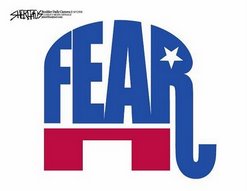Who knew there was what amounts to a Baptist Blogger ring? It even appears to be mainstream Baptist, the Mainstream Baptist blog is the homepage. There is even a ring for female pastors and the like, RevGalBlogPals. Go Baptists. I'm impressed.
I'm also impressed with the most recent post at Mainstream Baptist. I've been thinking about posting about abortion and the evolution of thought about it in respect to Southern Baptists. This post does it for me.
Even though I no longer consider myself Baptist, growing up Baptist has had a profound effect on me and my viewpoints. The original Baptist viewpoint about abortion sits hard in my heart, but I learned from the experiences of friends that there are many circumstances just as profound which make the availability of abortion critical. To the original viewpoint, that "Southern Baptists in the 1970's approved of abortion in the instance of rape, incest, when the life and health of the mother was at risk, and in the case of severe fetal deformity such as anencephaly", I have learned that "health" means the mental health of the woman has great bearing. I cannot think of many things that would be as injurious to the mental health of a female than to be forced to carry to term and give birth to a child when you never wanted to have a fetus growing in your body. If a minor child-woman gets pregnant, abortion must be available to her, without parental consent, because both her future mental health is at stake, and in too many instances, informing parents risks her physical health. It must be available for adult women when the condom breaks, or a lapse of judgement due to an altered state of mind (which is actually rape, in my mind, but happens), causes a pregnancy that cannot be prevented by Plan B for whatever reason, be it lack of availability or affordability or knowledge.
What might the most radical aspect of my viewpoint is that a woman who is so stupid and ignorant and immoral enough to have to have multiple (meaning 3 or more) abortions, then abortion must definitely be available to them. For one thing, no child should be burdened with such a moron for a parent. For another thing, I believe in evolution. Not only should a woman that stupid not even be living, no offspring of her genetic makeup should enter the world either. That's right. That's what I meant.
But, above all else, abortion should be available to women simply because every woman owns her own body. No man owns any woman's body. Nor does any other woman own another woman's body. Nor does any fetus own it's host's body. Certainly, Tony Perkins and Francis Schaeffer do not own any woman's body. Men like Tony Perkins and any man who protests or opposes a woman's right to chose whether to keep a fetus in her womb or expel it do have one thing: uterus envy.
Any woman politician who ratifies or condones the viewpoints of the enemies of women, such as Gov. Kathleen Blanco, should have their membership in the sisterhood of women permanently revoked. All women should shun such women. I say shun, because I oppose all violence against women, which is exemplified by anti-women's reproductive rights activists. However, tar and feathering might be permissible in such instances.
I sincerely hope that Baptists will revert to their original position which I am quite sure is much more reflective of the congregation, even if it's more conservative than mine. Because I found the entry to be so pointed and relevant and true, I am copying the entry from Mainstream Baptist here:
Friday, October 27, 2006
On the Southern Baptist Position on Abortion
Thanks to Carlos Stouffer at Jesus Politics for calling attention to Pew Forum's dialogue on "Is there a Culture War?" Alan Wolfe, Professor of Political Science and Director of the Boisi Center for Religion and American Public Life, Boston College, made some interesting comments about politics determining theology. Here's a quote:
Does politics drive culture or does culture drive politics? I'm not at all persuaded that culture is the sort of indelible unchanging thing within which politics then operates because these things -- these so-called cultural values, these moral values, these religiously inspired values -- are not at all timeless in our country but change very, very dramatically.
To cite my favorite example -- and any of you who has heard me speak before has heard this example, so I apologize for that -- in 1973 when the infamous decision of Roe v. Wade came down, the Southern Baptist Convention, which is America's largest evangelical Protestant denomination, endorsed it. That is a remarkable fact that is almost totally neglected given the fact that the Southern Baptist convention sort of embodies everything that we think of when we think about being on the right side of the culture war issues.
But there were a number of reasons why the SBC endorsed Roe v. Wade. One of them was that they knew Catholics were opposed to abortion, and in our country if Catholics are in favor of one thing, the Baptists are always in favor of the opposite. But even more seriously, the Baptists in America have had a very long history and tradition of separating church and state and of being strong believers in religious liberty.
Roger Williams was one of our great philosophers in the separation of church and state tradition, contrasting the garden of religious faith against the wilderness of politics and upholding the garden over the wilderness. And John Leland, who inherited in the Baptist tradition Roger Williams' ideals, was a close friend of Thomas Jefferson's and was instrumental in the passage of the First Amendment to the American Constitution.
And I think for many Baptists in America, as recently as the 1970s, the idea that the state could tell the woman what to do with her body was not all that different from the idea that the state could tell a religious believer what to do with his or her mind. There is a libertarian impulse in the American Baptist tradition, a distrust of the idea of the established state. And certainly American Baptist history is filled with a kind of anti-theocratic sense, a sense that the blending of church and state is something that any good Baptist should be instinctively suspicious of.
So there were perfectly valid theological and religious reasons for the Southern Baptist Convention when Roe v. Wade came down to say, Hey, this is something we can support. But 10 years later they repudiated their support. They issued all kinds of apologies for what they had done. And they wound up on the other side of the issue. I don't want to get into the politics of why they did that. Personally I think it reeked of political opportunism, but that is not the point I want to make.
The point I want to make is this: if the notion of the right to life is so culturally embedded, if it is supposed to have such deep religious roots, if it is supposed to be one of those timeless things and then politics is epiphenomenal against that, how could it possibly change so radically? It seems to me that what we witnessed in this shift from one side to the other on this issue was in fact politics becoming much more important than religion. It wasn't that religion was the timeless thing at all. In its new formulation of these issues, the Southern Baptist Convention and its leaders talk about accommodationism between state and church rather than strict separation of state and church.
But, again, all of these things suggest to me that what happened in the United States, using this as an example, is that politics was enormously important for people, to the point where their position on a political issue determined their theological and religious views, and not the other way around. It couldn't have been that religious and theological views came first and political views came second and led to this change. It had to be the other way around.
The original Southern Baptist position regarding abortion was a little more nuanced than Wolfe suggests. Southern Baptists in the 1970's approved of abortion in the instance of rape, incest, when the life and health of the mother was at risk, and in the case of severe fetal deformity such as anencephaly.
posted by Dr. Bruce Prescott at 8:47 AM
Thanks to Mike at Crooks and Liars for pointing to this for me, although probably for different reasons than I would agree with.
Democrat and Independent Thinker..."The individual has always had to struggle to keep from being overwhelmed by the tribe. If you try it, you will be lonely often, and sometimes frightened. But no price is too high to pay for the privilege of owning yourself." -Nietzsche
Commenting on many things, including..."A government more dangerous to our liberty, than is the enemy it claims to protect us from." - Keith Olbermann
Subscribe to:
Post Comments (Atom)






















No comments:
Post a Comment